A Hong Kong court has cleared seven pro-democracy figures – including media tycoon Jimmy Lai and barristers Martin Lee and Margaret Ng – of organising an anti-extradition bill rally in 2019. However, their convictions and sentences linked to participating in that protest were upheld.

The Court of Appeal on Monday delivered its verdict on the appeal launched by Lai, Martin Lee, Ng, activists Lee Cheuk-yan and Leung Kwok-hung, and former lawmakers Cyd Ho and Albert Ho, who were found guilty of organising and knowingly taking part in an unauthorised assembly on August 18, 2019. They were sentenced in April 2021 to up to 18 months behind bars, but some had their jail terms suspended.
The applicants were cleared of the organising an unauthorised assembly charge and their related sentences, while the charge of knowingly taking part in an unauthorised assembly was upheld.
Consequently, Lai saw his sentence reduced from 12 months to nine, Lee Cheuk-yan’s was reduced from 12 months to six, Leung’s went from 18 months to 12 months, and Cyd Ho had her eight-month sentence, which she had already completed, reduced to five months.
The four saw a reduction to their jail terms after the appeal justices ruled that while they were clearing of organising the banned procession, their sentences relating to participation were “unimpeachable.”
Ng, Martin Lee and Albert Ho, who were originally handed suspended sentences, only sought to challenge their conviction.
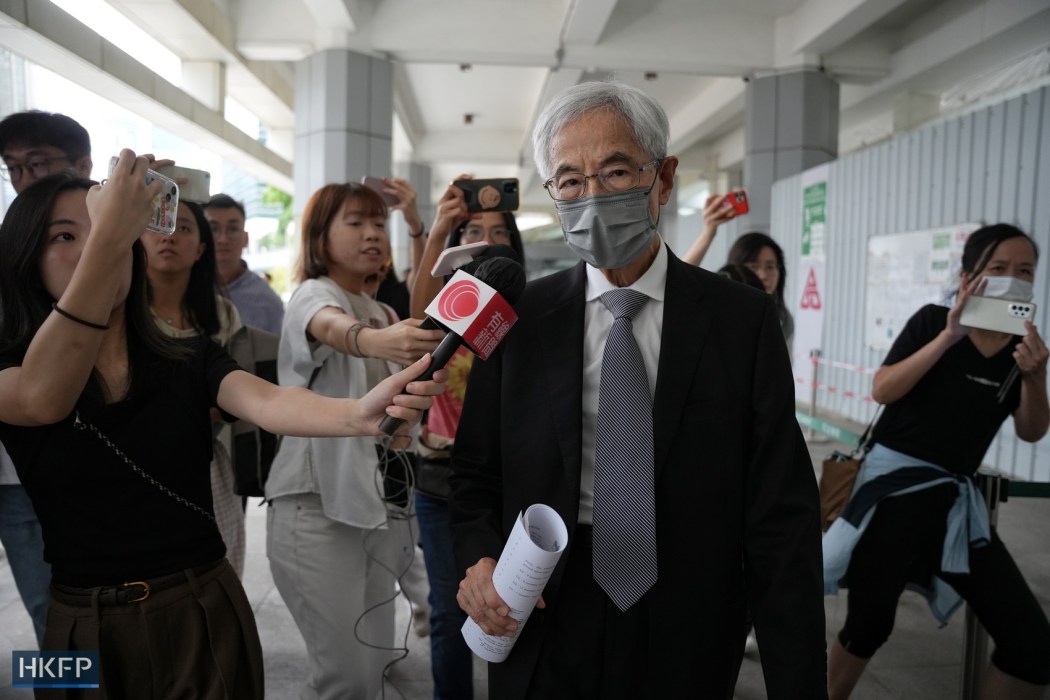
The decision was handed down more than eight months after the appeal application was first heard over several days in November last year. Appeal justices Andrew Colin Macrae, Maggie Poon and Anthea Pang said at the time that they would hand down the ruling within six months.
After the decision was handed down, barrister Ng told reporters outside the High Court that she had to study the judgement and look at what the appeal court said before making any further comment on the case or deciding her what her next step would be.
“We will be studying the judgement and consult our lawyers before saying anything confirmed,” she said.
Another legal heavyweight, Martin Lee, left the court without making any remarks to the press.
Lai and Lee Cheuk-yan, who are currently detained, were brought to the court in correctional services vans. Leung, who is also in remand, was not present as he was attending the national security trial involving 47 Hong Kong democrats, in which he is a defendant.
Cyd Ho was not in court on Monday.

Then-district judge Amanda Woodcock ruled in April 2021 that the democrats’ agreement to be the “banner party” leading the procession supported the prosecution’s case that they were among the demonstration’s organisers. Woodcock also rejected the defence argument that because the democrats were not named as organisers, nor were they involved in applying for a letter of no objection from the police, they could not be defined as organisers.
The appeal panel on Monday, however, said there was no suggestion that the appellants had played any part in planning the procession or organising the route of the march. There was also no evidence that they had given any signals or instructions to those who were following them.
“All they had done was to be at the front of a column of marchers, holding a banner and some of them chanting slogans, in defiance of a police ban. They were obviously there because their faces were well-known and would lend credence to their cause,” an English written judgement from the court read.
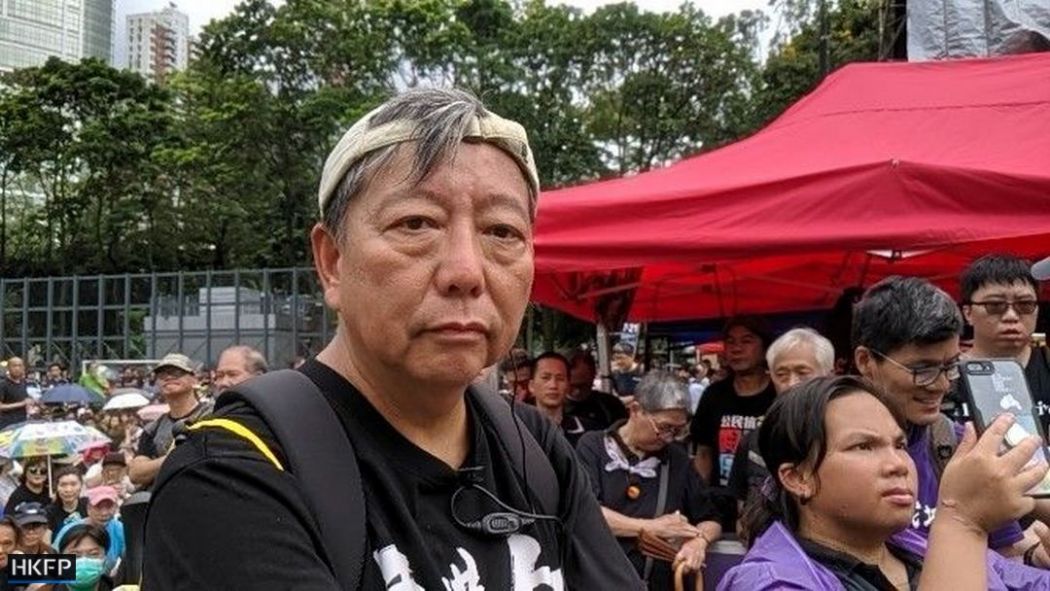
The appeal justices disagreed with Woodcock’s findings that it was unlikely that the procession would have come into being without the appeal applicants forming the banner party. Just because the democrats agreed to head the procession and led the crowd along a route the police had been informed of, did not render them guilty of organising the procession, the judgement read.
“An inference that because they were at the front of the procession, they must have organised it is not a realistic or suitable substitute evidence that they were involved in its organisation,” judges on the appeal panel wrote.
‘The law is settled’
The democrats failed to overturn their conviction of knowingly participating in an unauthorised assembly, however, after the appeal panel ruled they must have known that the procession was banned.
Some appeal applicants had contested the trial judge did not resolve their arguments in relation to proportionality in the context of an ultimately peaceful assembly. Others argued that part of section 17A of the Public Order Ordinance, which defined set out the conditions of an unauthorised assembly and related penalties, was “systematically unconstitutional.”
Their convictions amounted to a disproportionate interference with their right of assembly and should be found as “unconstitutional on the operation level,” one of the appellants had argued.
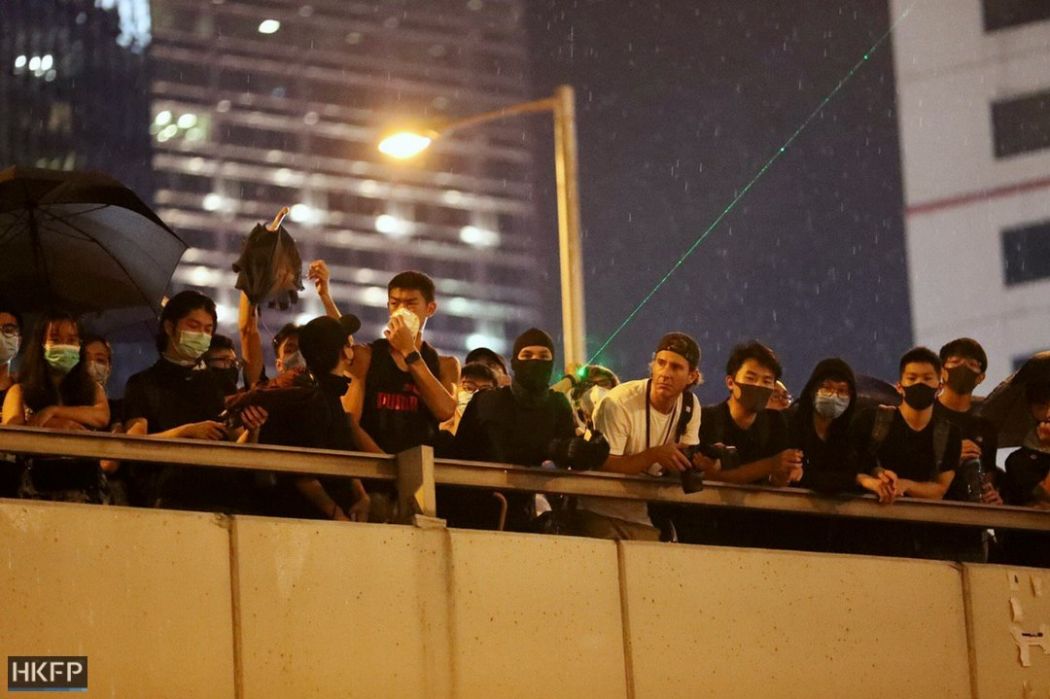
Some democrats also argued the police conduct at the time of the protest, if looked at objectively, showed no hint that the procession was unauthorised.
The appeal court on Monday confirmed that there was “nothing unconstitutional about section 17A,” and it was not up to individual defendants to make their own assessment of the operational proportionality.
“The law is settled and we are bound by it,” the judgement read.
The justices also stood by Woodcock’s ruling that the “water flow” defence was “a ruse to get around the ban,” saying the evidence showing the democrats’ participating in the unauthorised assembly was “overwhelming.”
Seating arrangements
Before Monday’s hearing began, unionist Elizabeth Tang, who is married to Lee Cheuk-yan, complained that the court had not allocated seats for family members of the appeal applicants.
She alleged that seats in the public gallery had been taken by people who were “paid” to attend the hearing. Activist Tsang Kin-shing of the League of Social Democrats, one of the last active pro-democracy groups in Hong Kong, also criticised the Judiciary’s arrangements.
A court employee told Tang and Tsang that they had not been allocated seats because they “did not apply” for them prior to the hearing.
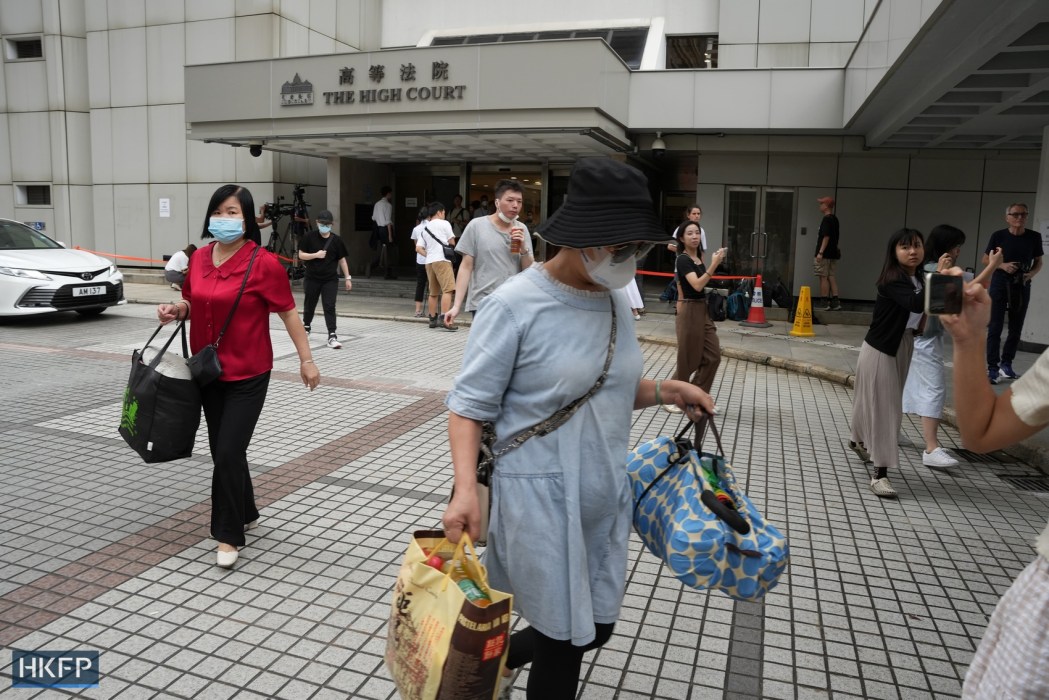
The public gallery on Monday was full of journalists and more than 20 court goers, who were mostly middle-aged women. They all wore face masks, while some carried yoga mats.
One court goer was asked by journalists if she was a family member of the people involved in the case when she left the High Court but she did not respond.
Tang was eventually escorted into the courtroom with two women, one of whom waved at ex-Democratic Party chairman Albert Ho, around four minutes before the hearing was set to begin. They were seated on the jury bench, right next to appeal applicants Martin Lee and Ng.
According to the Judiciary’s website, special ticketing arrangements are imposed to regulate the flow of people for certain hearings.
In general, members of the public who wish to observe proceedings should line up in for tickets which are allocated on a first come, first served basis. The court also reserves seats for journalists.
The Judiciary does not state its policy of allocating seats for family and friends of defendants or appellants. In most court hearings, especially protest-related or national security cases, the Judiciary provides separate albeit limited admission tickets for family and friends.

In response to HKFP’s enquiries, the Judiciary said on Tuesday that it did not make any special ticketing arrangement for the appeal case heard on Monday because there had not been many court attendees for the case in the past and the hearing was expected to end within ten minutes.
Litigants would have to submit an application to the court if they wished to reserve seats for their family members. The court did not receive any reservation request for Monday’s appeal hearing, the Judiciary said, and therefore did not make any arrangement.
The Judiciary added their staff made special arrangements for family members of the appeal applicants immediately after they requested seating in the main court.
“In response to this incident, the Judiciary will review the seating arrangements and related operational arrangements for public attendance, so as to allocate an appropriate number of seats for the families of the defendants and other individuals in the main courtroom during future hearings,” a Chinese email from the Judiciary read.
At a separate high-profile case relating to 47 pro-democracy figures charged with conspiracy to commit subversion, evidence of people being paid to line up for court admission tickets emerged when the close-watched national security trial began in February.
‘Water flow’ assembly
On August 18, 2019, the Civil Human Rights Front – which has since disbanded – applied to hold a gathering at Victoria Park to protest against police violence. They also applied to march from the park to Central and hold a second meeting in Central.
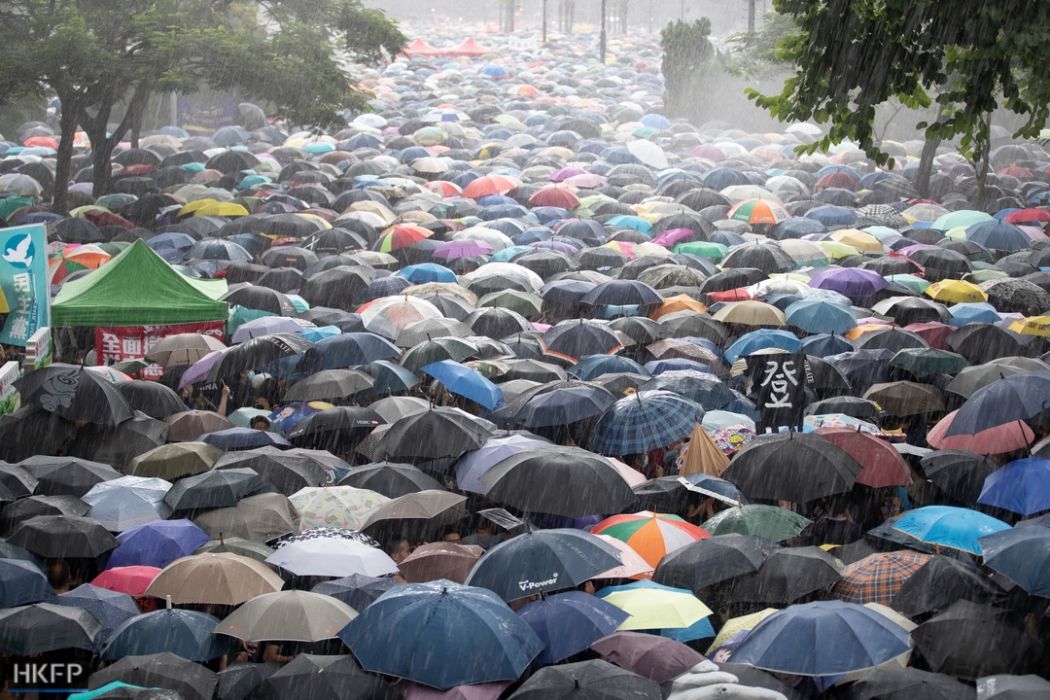
Police approved the static assembly at Victoria Park, but banned the march and the Central assembly. Activists later called on the public to join the “water flow” assembly, in which they would enter and leave Victoria Park dynamically.
The appeal applicants argued last November that they could not be considered “organisers” because they were invited to help with the event. The water flow arrangement was also part of a safe dispersal plan, said Barrister Audrey Eu who represented the media mogul. She said having a “common purpose” was what constituted a procession, but if the purpose was a safe and orderly dispersal, that could not be considered a procession.
Eu also told the three-judge panel that it was not a case of good luck that there was no “untoward” conduct at the gathering in Victoria Park. Over one million people – according to organiser estimates – entered and exited the park dynamically to rally against the police use of force during the citywide protests sparked by the now-axed extradition bill.
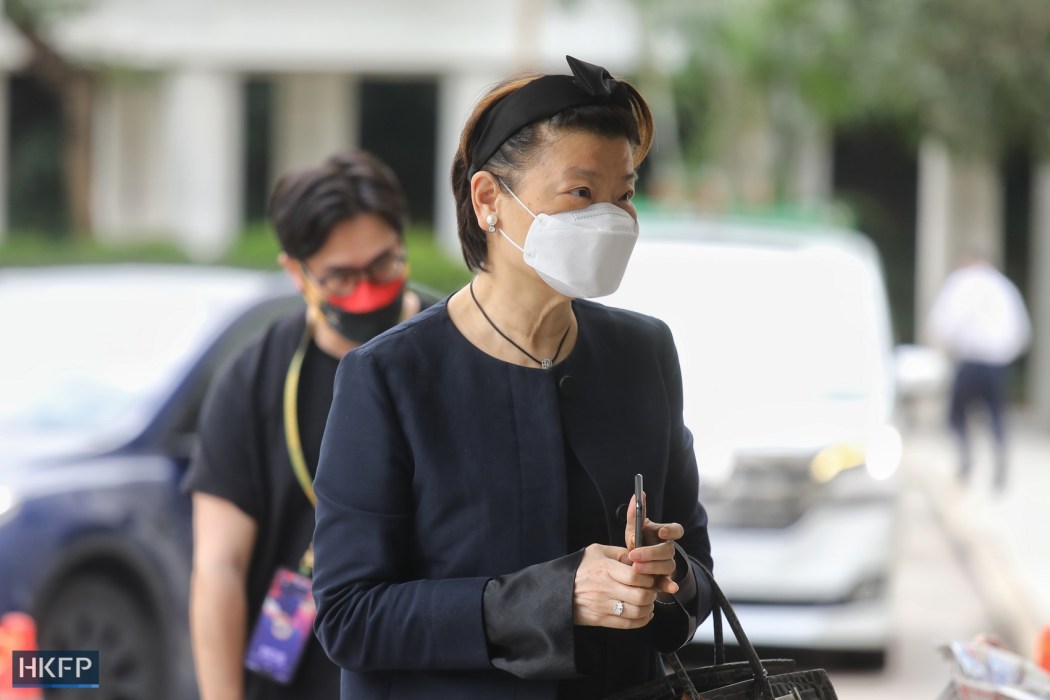
Instead of penalising the seven prominent pro-democracy figures, the court should look at the presence of the democrats as a way of maintaining peace and enabling people to “vent strong feelings at difficult times,” Eu said.
Protests erupted in June 2019 over a since-axed extradition bill. They escalated into sometimes violent displays of dissent against police behaviour, amid calls for democracy and anger over Beijing’s encroachment. Demonstrators demanded an independent probe into police conduct, amnesty for those arrested and a halt to the characterisation of protests as “riots.”
Support HKFP | Policies & Ethics | Error/typo? | Contact Us | Newsletter | Transparency & Annual Report | Apps
Help safeguard press freedom & keep HKFP free for all readers by supporting our team

LATEST FROM HKFP
HKFP has an impartial stance, transparent funding, and balanced coverage guided by an Ethics Code and Corrections Policy.
Support press freedom & help us surpass 1,000 monthly Patrons: 100% independent, governed by an ethics code & not-for-profit.










